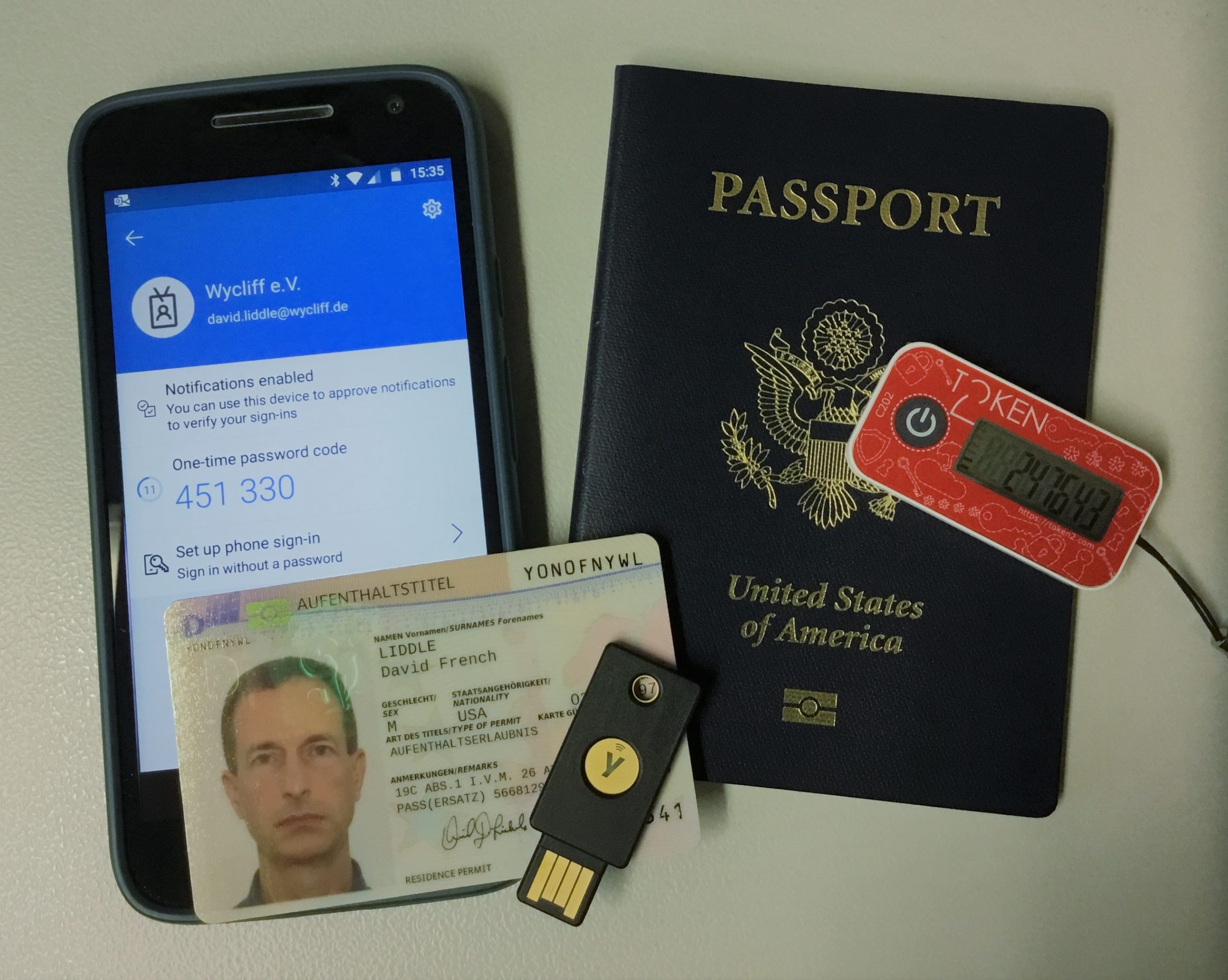This phrase is probably familiar to anyone who has read a book or watched a film in which a person (or group) approaches a sentry. The sentry commands the party to stop and to identify itself verbally before coming closer. If the party asserts that it is “friendly”, then the guard gives the command to “advance and be recognized”. Once the party’s exact identity is verified to the sentry’s satisfaction, they are allowed to proceed.
Moving about on the internet is not so different, is it? Have you needed to enter a user name and password lately? Answer extra questions? Enter a separate code? I’m not even going to wait for you to answer that.
We are frequently asked to identify, authenticate, and verify ourselves in this world of ours. With more than 7.5 billion people estimated to be wandering the globe, it is often important to be certain that people are who they say they are. Confusion, deceit, or fraud can have disastrous consequences.
At work, I am guiding the staff and members of Wycliffe Germany toward the use of stronger forms of authentication for the systems we use. Some of us are caretakers of information about people, places, or situations that needs to be protected. When someone seeks to view an email account or open a file, we want the system to respond, “Halt! Who goes there?” To reduce or eliminate the possibility of unauthorized access, we put safeguards in place such as multi-factor authentication.
I’m not going to drone on and on about this topic. You can recall for yourself how you authenticate yourself and others while traversing the internet or even just answering the door. We do it all the time!

What fascinates me is how often I come across the themes of identity, verification, and authentication as I read the Bible. Given the particular role I fill within a family of organizations focused on God’s Word, I can’t help but notice! Here are a few of my favorite examples, as reflected in the New Living Translation:
- In Exodus 4:8, the Lord gives Moses instructions for authenticating the Lord’s commission to him: “‘If they do not believe you and are not convinced by the first miraculous sign, they will be convinced by the second sign.'”
- In Deuteronomy 18:22, the Lord shares how to identify a prophet: “‘If the prophet speaks in the Lord’s name but his prediction does not happen or come true, you will know that the Lord did not give that message.'”
- In Joshua 9:3-15, the Israelites fail to verify the identity of the Gibeonites, accepting fraudulent evidence: “So the Israelites examined their food, but they did not consult the Lord.”
- In Judges 6:17, Gideon verifies that it is the Lord commanding him: “‘If you are truly going to help me, show me a sign to prove that it is really the Lord speaking to me.'” The sign freaks him out a bit.
- In John 5:36, Jesus identifies himself this way: “‘I have a greater witness than John—my teachings and my miracles. The Father gave me these works to accomplish, and they prove that he sent me.'”
- In John 13:35, Jesus tells the disciples, “‘Your love for one another will prove to the world that you are my disciples.'”
- In Acts 2:22, Peter reminds the crowds, “‘People of Israel, listen! God publicly endorsed Jesus the Nazarene by doing powerful miracles, wonders, and signs through him, as you well know.'”
- In James 2:18, the author asserts the authenticity of his faith in this way: “‘I will show you my faith by my good deeds.'”
- In Revelation 2:17, Jesus promises the following to the faithful: “‘I will give to each one a white stone, and on the stone will be engraved a new name that no one understands except the one who receives it.'”
See? The whole thing is woven through with authentication and verification. One could go on and on. When you read, keep an eye out for these themes. I will mention just two more:
- Matthew 7:20, “‘Yes, just as you can identify a tree by its fruit, so you can identify people by their actions.'”
- Galatians 5:22-23, “But the Holy Spirit produces this kind of fruit in our lives: love, joy, peace, patience, kindness, goodness, faithfulness, gentleness, and self-control.”
And those two things give a person a lot of food for thought—pun intended. When you pray, please ask our Father (and Gardener) to produce abundant, excellent fruit in our lives as we serve him through Wycliffe here in Germany. And may he help you yourselves to prove to the world around us just how fruity you are! Wait, that didn’t come out right. May the fruit of your lives prove your identity in Christ to everyone you meet!
